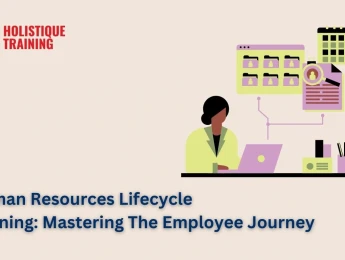Any business should be committed to training and improving the skills of its employees, at whatever level, to be successful and adaptive in the ever-changing world of commerce. Every manager and team leader needs to follow a programme of continuous development to learn new skills and maintain their effectiveness in managing their teams. A course in management and leadership will benefit the individual, advance their careers, and aid the growth of the business.
Many businesses don’t realise the difference between management and leadership and that both roles can work together to create a well-functioning and successful department with employees motivated to reach a collective end goal.
Managers and leaders require a strong and strategic development plan to ensure they meet department goals and achieve group performance. They also need to implement accurate and informative reporting models to highlight any areas causing concern and develop effective communication methods to reiterate the importance of company values and goals and manage underperformance.
Upon completion of this course, participants will be able to:
- Develop effective communication skills to motivate a team.
- Understand how to monitor underperformance and manage it accurately.
- Create collective company goals and values.
- Understand how to increase productivity and quality within teams.
- Handle disputes and disruptions professionally.
- Create a strategic business plan to aim for continuous improvement.
- Highlight risk areas and create contingency plans to avoid and recover from risks.
This course is designed for anyone developing into a management or leadership role or interested in learning more about management and leadership and what these roles mean for a successful business. It would be most beneficial for:
- New Team Leaders
- Experienced Team Leaders and Managers
- Supervisors
- Managers progressing to new roles.
- Employees moving into managing roles
- Managers and Team Leaders developing new skills
- Professionals evaluating and improving their personal performance
- Operations Managers
- General Managers
- Business Owners
This course uses a variety of learning methods to aid understanding. Through interactive seminars and knowledge-based questionnaires, participants will learn to understand leadership concepts and management skills. Group activities will also be conducted to map out strategic goals and monitoring systems to highlight effectiveness.
Each participant will participate in role-playing activities to strengthen their communication skills when dealing with direct reports and senior management. They will be presented with real-world case studies of organisations with model leadership programmes.
Day 5 of each course is reserved for a Q&A session, which may occur off-site. For 10-day courses, this also applies to day 10
Section 1: Management & Leadership Essentials
- Essential leadership skills and how to apply them.
- Management vs. leadership – do you need to do both?
- The art of delegation.
- Using emotional intelligence to benefit your team.
- Your personal development programme.
- Influencing others and gaining buy-in.
- Planning for the future.
- Your personal leadership style: daily, weekly, monthly, yearly.
Section 2: Project Management & Your People
- Motivational techniques and tools.
- Identifying your employees’ strengths.
- Creating a positive working environment for your employees.
- Situational leadership and learning.
- Your team’s fixed mindset and how to break it.
- Avoid limiting beliefs – think bigger.
Section 3: Team Performance Monitoring & Improvement
- Setting KPIs that reflect your team goals.
- Time management and organisational skills to pass along.
- Performance development plans and their importance.
- Developing team trust and collaboration.
- The importance of feedback and reflection.
- Case studies and motivational techniques.
- Ruling out negativity.
- Reviews and one-on-one meetings.
Section 4: Communication Styles & Wellbeing
- Utilising customer service skills to your advantage.
- Developing a customer-centric company.
- Body language and its importance.
- Communicating remotely and how this differs from face-to-face.
- Active listening.
- Handling personal problems in the workplace.
- Recruiting the right people.
- Dealing with individual personalities.
Section 5: Managing Change & Delivering a Difficult Message
- Creating a visual framework for change.
- The 80/20 method.
- SWOT analysis and ways to move forward.
- Reporting to senior management.
- Delivering a difficult message to colleagues to gain a positive outcome.
- Resolving team conflict.
- Risk analysis and creating a contingency.
- Future-proofing your team.
Upon successful completion of this training course, delegates will be awarded a Holistique Training Certificate of Completion. For those who attend and complete the online training course, a Holistique Training e-Certificate will be provided.
Holistique Training Certificates are accredited by the British Assessment Council (BAC) and The CPD Certification Service (CPD), and are certified under ISO 9001, ISO 21001, and ISO 29993 standards.
CPD credits for this course are granted by our Certificates and will be reflected on the Holistique Training Certificate of Completion. In accordance with the standards of The CPD Certification Service, one CPD credit is awarded per hour of course attendance. A maximum of 50 CPD credits can be claimed for any single course we currently offer.
Categories
Management & Leadership,- Course Code MG2-127
- Course Format Classroom, Online,
- Duration 5 days












